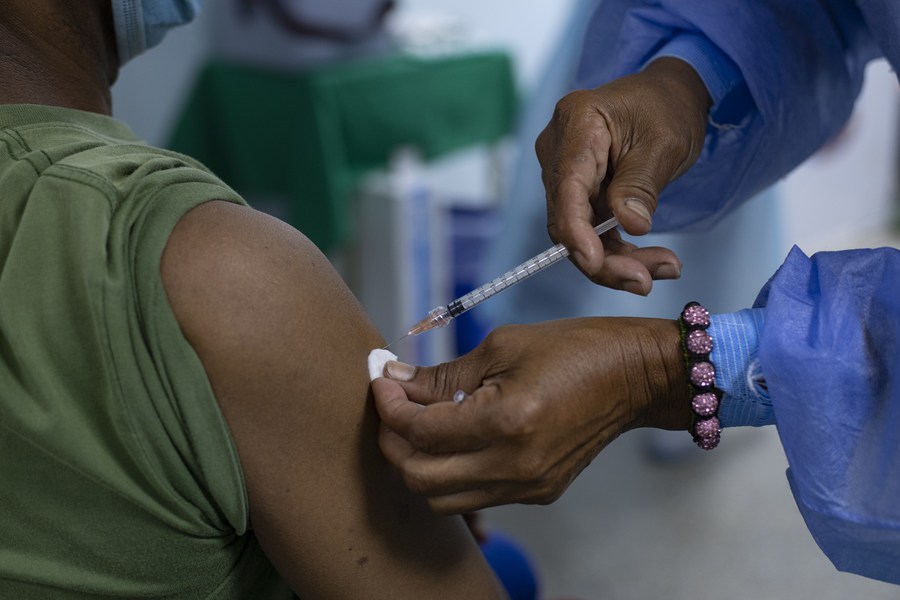Millions of donated jabs 'may have to be wasted'
By ANGUS McNEICE in London | China Daily Global | Updated: 2022-02-16 09:37

WHO criticizes dumping of near-expired vaccines by rich countries on poor regions
Global health authorities have criticized rich nations for dumping near-expired COVID-19 vaccines on poor regions, as a new report found that more than one third of jabs donated around the world are yet to be administered.
London-based science consultancy Airfinity said that wealthy nations have pledged to donate 2.93 billion doses and delivered 1 billion doses to date. Of the delivered shots, just 65 percent have gone into people's arms, while millions of jabs remain in storage or have been wasted.
Airfinity said that vaccine rollout has been hampered in part by logistical issues in some developing regions. The mRNA vaccine from Pfizer, the most donated vaccine representing 31 percent of total vaccine aid, poses a particular challenge, as the shot must be stored and transported at ultracold temperatures.
"Our analysis shows many countries are struggling to roll out these vaccines and are facing logistical challenges as well as some hesitancy," said Matt Linley, analytics director at Airfinity. "Nearly two billion more vaccines doses are expected to be donated this year, and so turning these vaccines into vaccinations is now the most pressing challenge."
The World Health Organization has previously criticized donating nations for the way they have coordinated with developing countries, particularly in Africa.
"The majority of the donations to date have been ad hoc, provided with little notice and short shelf lives," WHO said in a statement in November.
The United Nations Children's Fund, or UNICEF, said that developing countries had been forced to reject millions of donations that had neared their expiration dates.
"More than a 100 million have been rejected just in December alone," UNICEF supply division director Etleva Kadilli told the European Parliament in January.
In December, Reuters reported that Nigeria had received a donation of 1 million near-expired AstraZeneca jabs originating from Europe and organized through vaccine equity program COVAX. The AstraZeneca jab has a shelf life of 6 months, however the donated shots were due to expire in four-to-six weeks, leaving authorities little time to deliver the vaccines, many of which went to waste.
"This has made it extremely challenging for countries to plan vaccination campaigns and increase absorptive capacity," WHO said. "To achieve higher coverage rates across the continent, and for donations to be a sustainable source of supply that can complement supply from the African Vaccine Acquisition Trust and COVAX purchase agreements, this trend must change."
Airfinity said that the AstraZeneca COVID-19 vaccine is the second most donated jab, representing 27 percent of total aid, followed by those from Johnson and Johnson (15 percent), Moderna (15 percent), Chinese pharmaceutical company Sinopharm (8 percent), with the remaining 4 percent coming from other assorted vaccine makers.
COVAX has overseen 68 percent of delivered donations, while 32 percent have come from bilateral deals, Airfinity said.
























